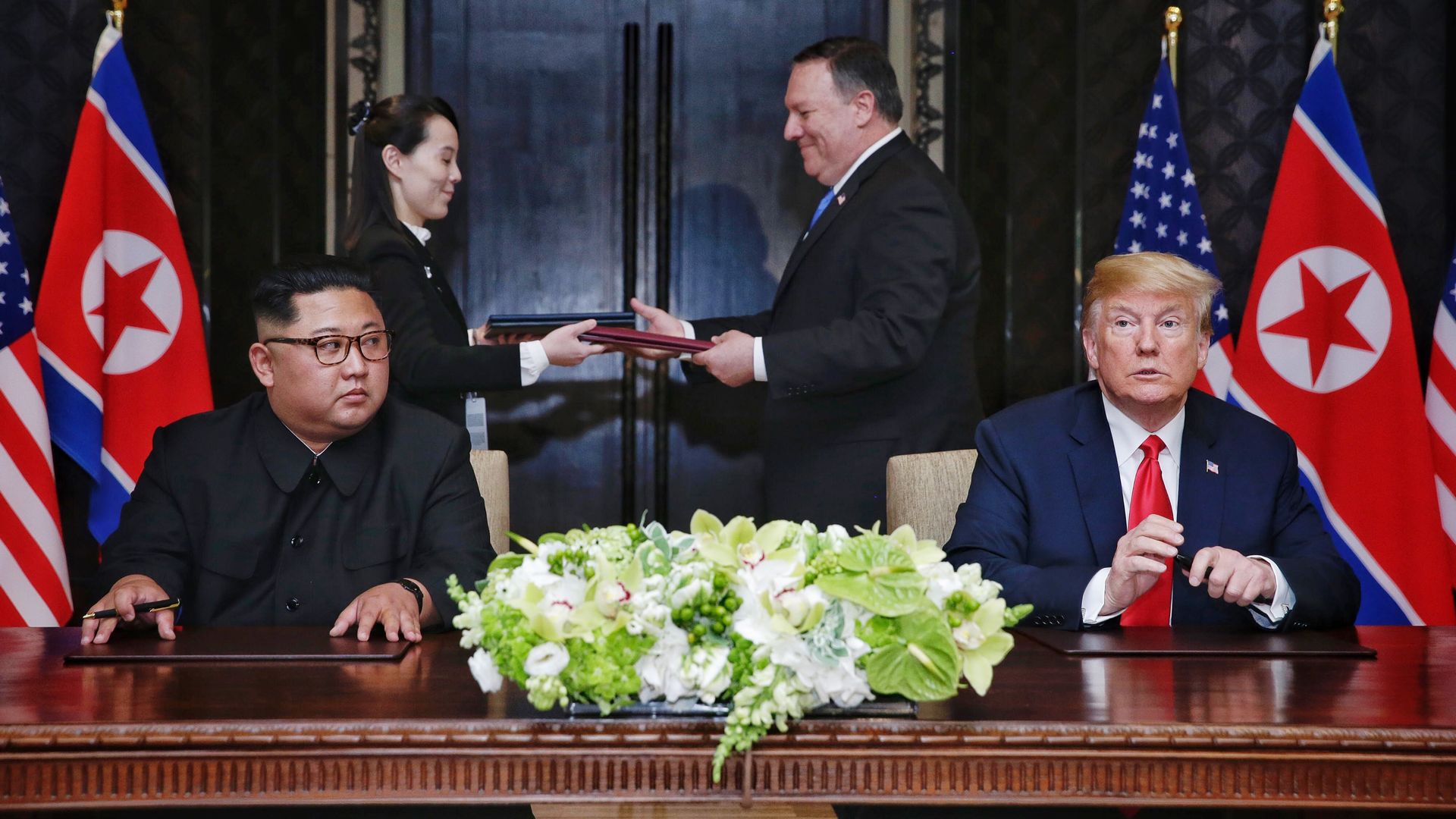Updated Jun 12, 2018 - World
Expert VoicesDespite lack of plan, North Korea denuclearization could still happen
Add Axios as your preferred source to
see more of our stories on Google.

North Korean leader Kim Jong-un with U.S. President Trump during their historic summit at the Capella Hotel on Sentosa island on June 12, 2018, in Singapore. Photo: Kevin Lim/The Strait Times via Getty Images
